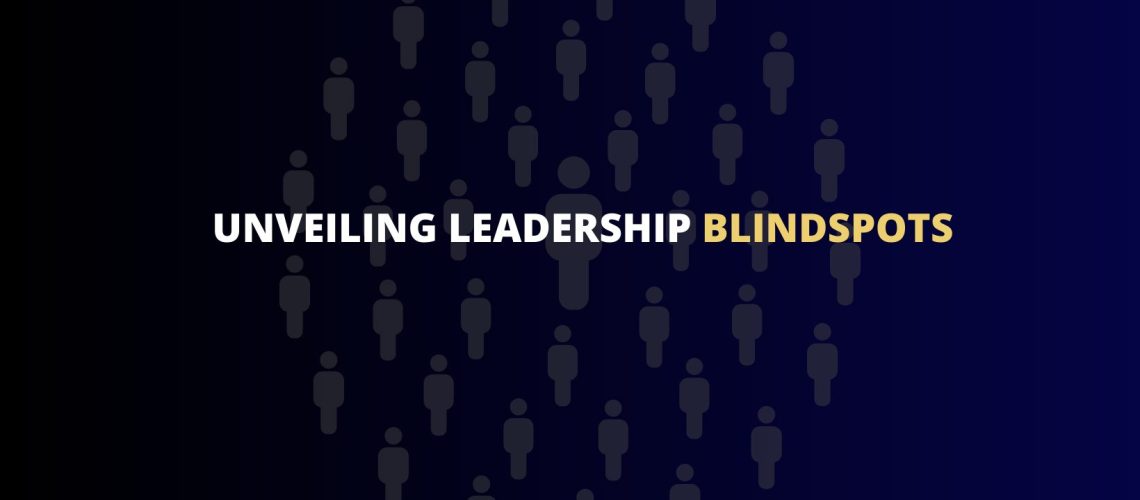Leadership is a complex and multifaceted role that requires a keen understanding of oneself, others, and the surrounding environment. However, even the most competent leaders are not immune to blindspots, which can hinder their effectiveness and impact. Blindspots are areas in which leaders are unaware of their own biases, weaknesses, or limitations. In this blog post, we will delve into the concept of leadership blindspots and explore how they can affect leadership effectiveness.
Understanding Leadership Blindspots
Leadership blindspots can manifest in various forms, such as cognitive biases, emotional blindspots, or lack of self-awareness. These blindspots prevent leaders from accurately perceiving reality, making informed decisions, and effectively connecting with their teams. They create gaps in knowledge, perspective, and understanding, leading to potential pitfalls in leadership.
The Impact on Leadership Effectiveness
- Decision-making errors: Blindspots can impair a leader’s ability to make sound decisions. Cognitive biases, such as confirmation bias or overconfidence, can cloud judgment and prevent leaders from considering alternative viewpoints or information that contradicts their preconceived notions. This can lead to poor decision-making and missed opportunities.
- Lack of self-awareness: Effective leadership begins with self-awareness, as it allows leaders to understand their strengths, weaknesses, and how their behavior impacts others. Blindspots in self-awareness can hinder leaders from recognizing their limitations, managing their emotions, or adapting their leadership style to different situations. This can create communication gaps, hinder teamwork, and reduce overall effectiveness.
- Limited perspective: Blindspots can narrow a leader’s perspective and limit their ability to see the bigger picture. Leaders who are unaware of their biases may inadvertently exclude diverse opinions or fail to consider the impact of their decisions on various stakeholders. This lack of perspective can lead to missed opportunities, alienation of team members, and a failure to address critical issues.
- Ineffective communication: Blindspots can impede effective communication and interpersonal relationships. Leaders who are unaware of their communication style or the impact of their words and actions may inadvertently create misunderstandings or foster a toxic work environment. This can result in reduced employee engagement, diminished trust, and a breakdown in collaboration.
Overcoming Leadership Blindspots
Foster self-awareness:
Leaders should engage in self-reflection, seek feedback from others, and embrace continuous learning. By understanding their strengths, weaknesses, and biases, leaders can actively address their blindspots and work towards personal and professional growth.
Encourage diverse perspectives
Actively seek out and value diverse viewpoints, both within and outside the organization. By fostering an inclusive and open environment, leaders can challenge their own assumptions, broaden their understanding, and make more informed decisions.
Embrace humility
Recognize that nobody is perfect and that blindspots are a natural part of being human. Cultivate a mindset of humility and be open to feedback and constructive criticism. Leaders who are humble are more likely to acknowledge their blindspots and take proactive steps to address them.
Build a support network
Surround yourself with trusted advisors, mentors, or coaches who can provide honest feedback and help you uncover blindspots. Seeking different perspectives and insights can enable leaders to overcome their limitations and expand their leadership effectiveness.
Conclusion
“The first step towards change is awareness. The second step is acceptance.” – Nathaniel Branden
Leadership blindspots can significantly impact leadership effectiveness, hindering decision-making, communication, and overall success. However, by cultivating self-awareness, embracing diverse perspectives, practicing humility, and building a support network, leaders can mitigate the impact of blindspots and become more effective in their roles. Awareness and ongoing effort to uncover and address blindspots are essential for growth and development as a leader, fostering stronger relationships and achieving better outcomes.
Do you need help identifying your leadership blindspots? Envision Global Leadership’s ALII-Map assessment is an AI based, statistically valid instrument that identifies potential blindspots that may hinder your effectiveness as a leader.
Our program provides mid- to senior-level workers with insight into the strength of their influence and helps organizations develop future leadership. Reach out today to learn more about our assessment and how you can invest in your organization’s future.

